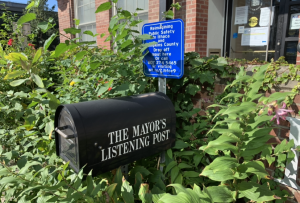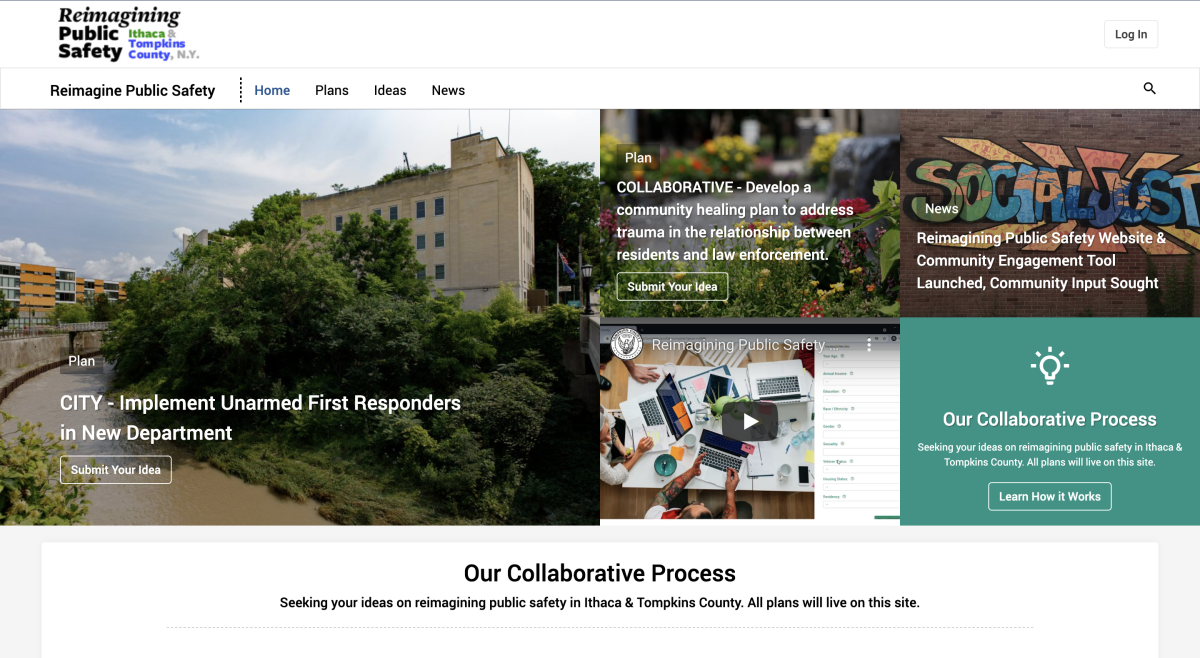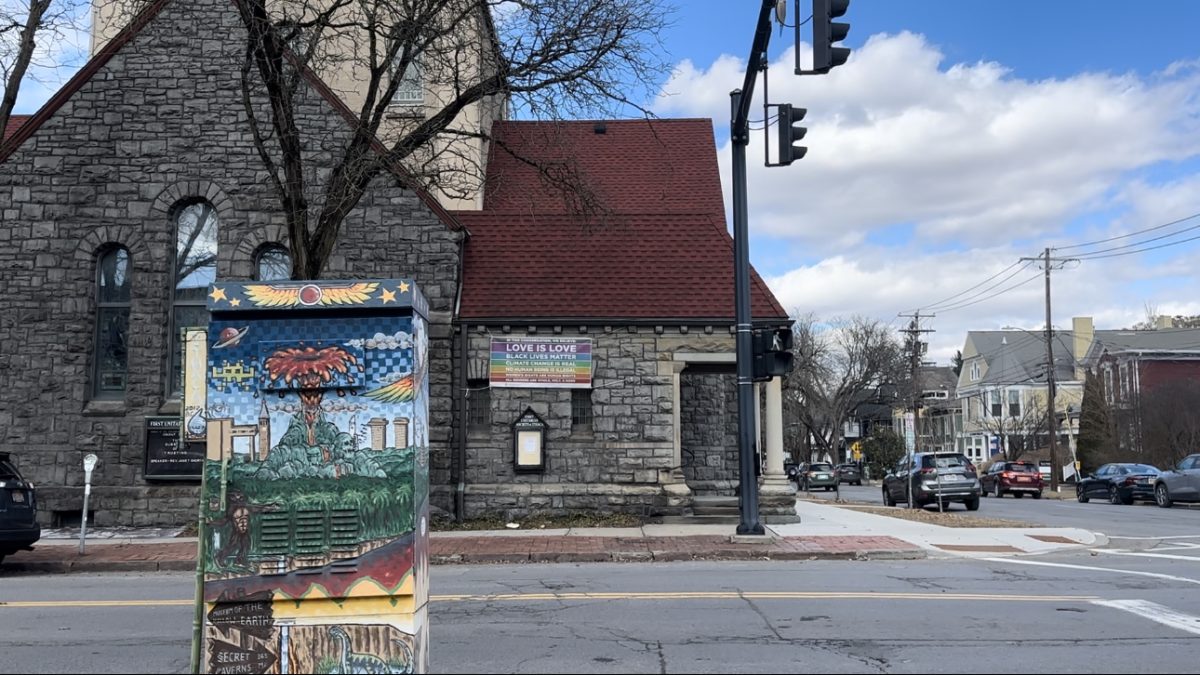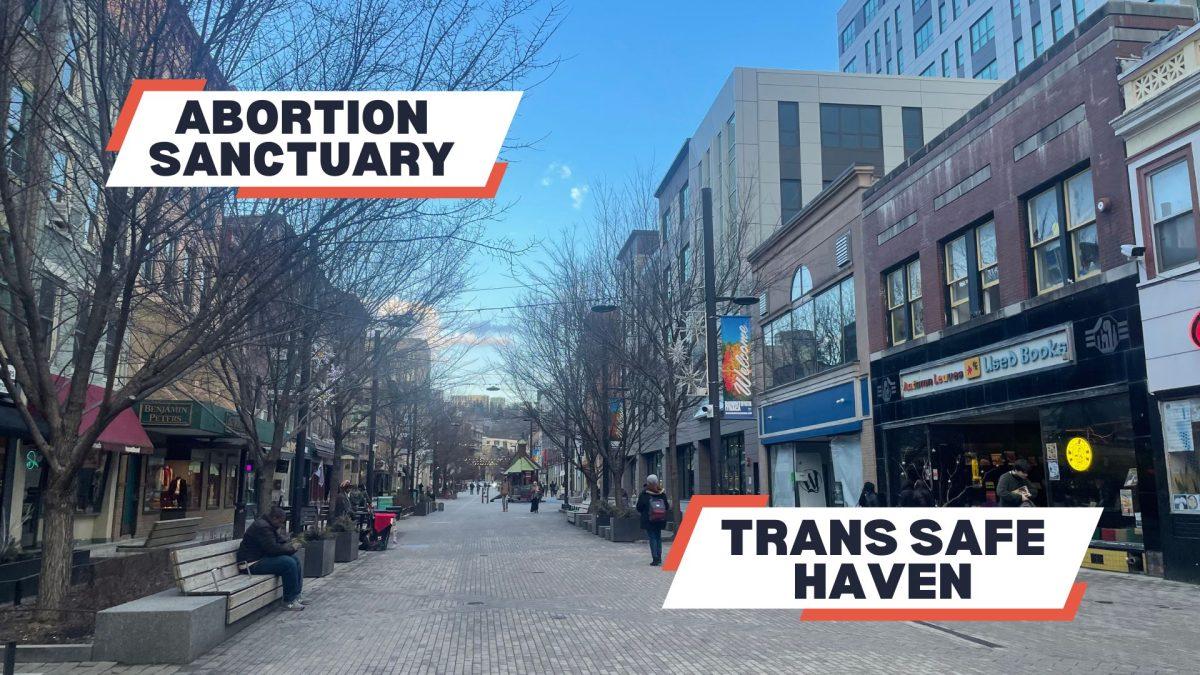In the wake of the murder of George Floyd, governors, mayors and other local officials across the nation began to address the question of “defunding the police”. Here in New York State, former Governor Andrew Cuomo announced executive order 203, directing municipalities to come up with ways to reimagine policing in their area.
The goal of the executive order was to push local government to take a closer and more critical look at their law enforcement departments, finding ways to ensure that the departments are truly protecting and serving their respective communities. Municipalities were given until April 1st of this year to submit their plan.
Ithaca Police Department Facing Backlash in Recent Months
The city of Ithaca has been no stranger to complaints surrounding the Ithaca Police Department’s conduct. In October of 2020, during a protest outside IPD’s headquarters, six people were arrested and the department used pepper spray for the first time during these demonstrations to disperse a crowd outside the station.
In addition, following an alleged event where Deputy Chief Vincent Monticello defended a man who told a protester to “kill (yourselves)” and “just die already,” a petition was circulated calling for Monticello’s resignation. In January of this year, Officer Kevin Slattery was demoted and suspended after bodycam footage showed him bragging about beating up a suspect and planting evidence.
Tear gas deployed. pic.twitter.com/rhMs6UdfCL
— Matt Butler (@AllegedButler) October 22, 2020
Mayor Svante Myrick did not waste time to come up with a comprehensive plan for the city in collaboration with Tompkins County, calling it “Reimagining Public Safety”. The plan looks at all aspects of law enforcement, giving suggestions that will change how officers respond to specific calls, rebranding the SWAT team and perhaps introducing unarmed officers in specific situations.
Response by City of Ithaca Government
The plan was approved by the City of Ithaca on March 31 of this year, and a few months later the mayor’s office took another step, putting in place a “Reimagining Public Safety Work Group”. The group is a 17-member board that is made up of local government officials, activists and Ithaca College as well as Cornell University students.

Community Outreach
So far, the website is gaining a good amount of traction, but the concerns lies in whether or not it will be receiving input from those in the Ithaca community who are most affected by policing. It is still unclear if members of the Reimagining Public Safety Work Group will be able to see the demographics of the respondents or if they will be setting up time to sit down with these respondents to ask them more about their ideas. Currently there are two Zoom sessions where there will be a space for a more collective and “face to face” discussion. There is also mention of in-person meetings in the future.
I reached out to several members on the Reimagining Public Safety Work Group to hear what they are looking forward to with this new community engagement tool as well as the plan itself. I did receive responses from some of the members, but due to scheduling conflicts some were not able to comment. Another case involved a member agreeing to an interview but then cancelling due to a miscommunication amongst work group members of who should be talking to media outlets.
In addition to this, other members did not respond for comment at all, and in one instance a work group member said “unfortunately, I don’t work with white publications in Ithaca or any for that matter.” I also reached out to the mayor’s office but did not receive a message back for comment.
Frankie Walls, a senior at Ithaca College spoke about her thoughts on the community website, “I think it might be a good way to engage the community if they’re actually reading them and looking”. Walls remained skeptical of the website, unsure if the right people were putting in their thoughts and if government would take the ideas seriously.
Editor’s Note: After this piece was published, Eric Rosario, a co-lead on the Reimagining Public Safety Work Group responded to the request for comment. Rosario acknowledged the large student presence that the city as it houses both Cornell University and Ithaca College community members. They ensured that their work would “be informed by data, review of other alternate response models, consultations with technical advisors and experts, and more, but most importantly by community perspective”. Community perspective, Rosario said, is being achieved with participants’ demographics and accessibility to the resources in mind. According to Rosario, “when people create a profile, they are able to indicate their demographics, though those are not required and we’re only asking people to share what they’re comfortable with”. In addition to this as mentioned in the piece, community members are able to access the website via the county libraries as well as phone into Zoom meetings. Rosario confessed that “Change can be hard, and even scary” but called on community members to, “join us in leading with hope, not fear”.














